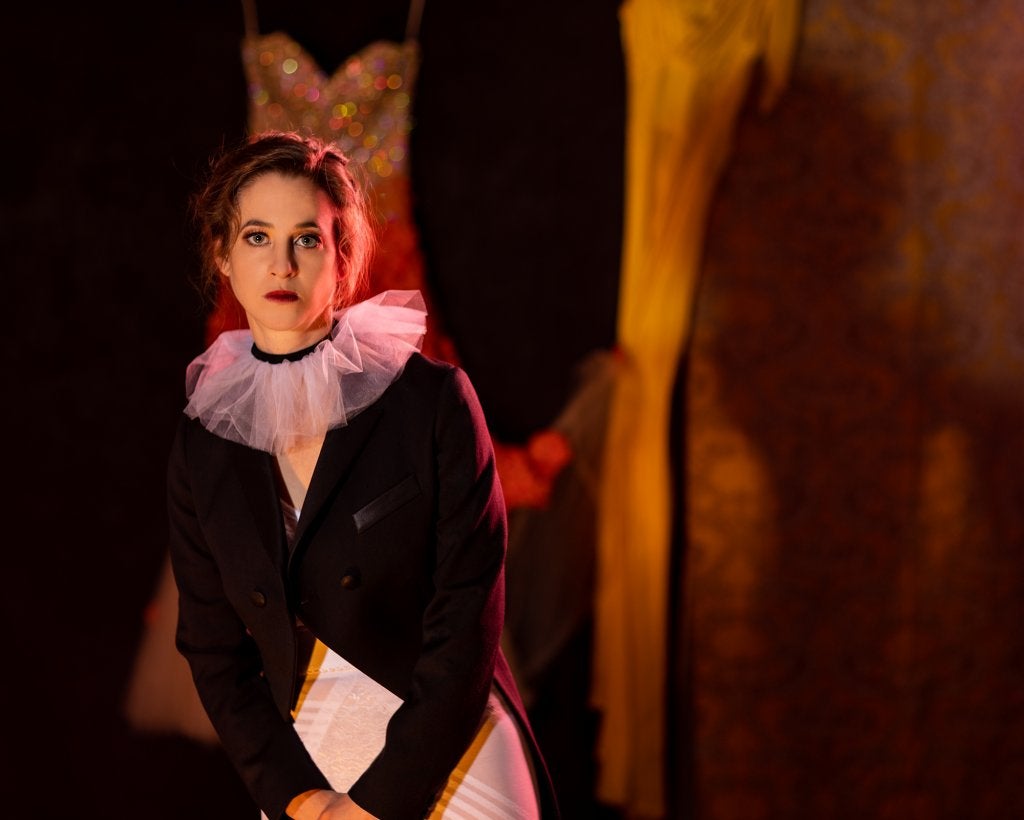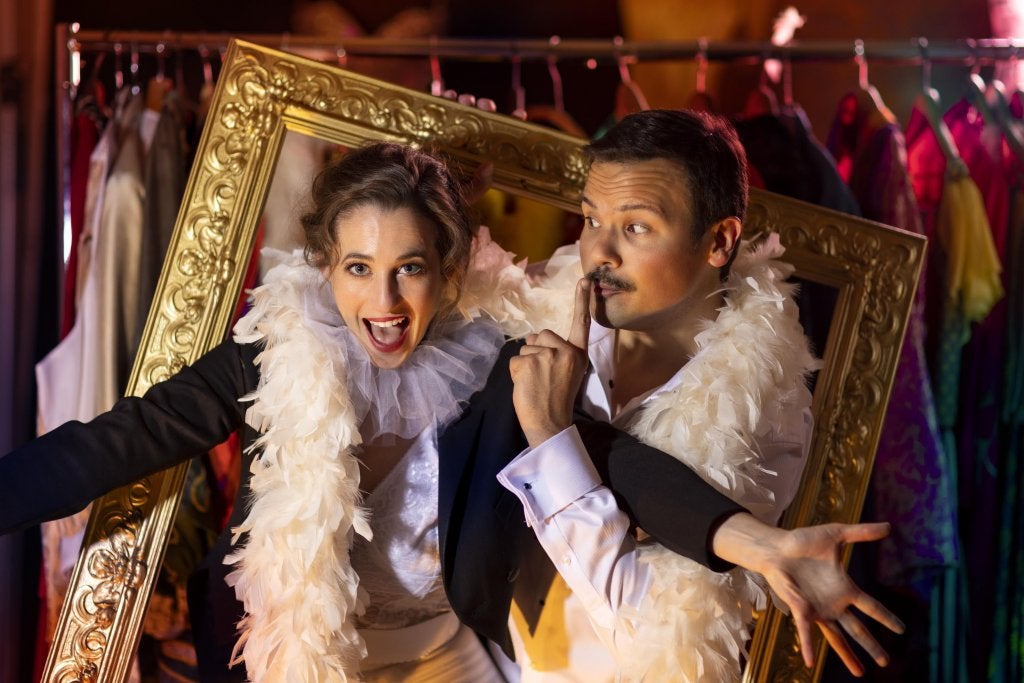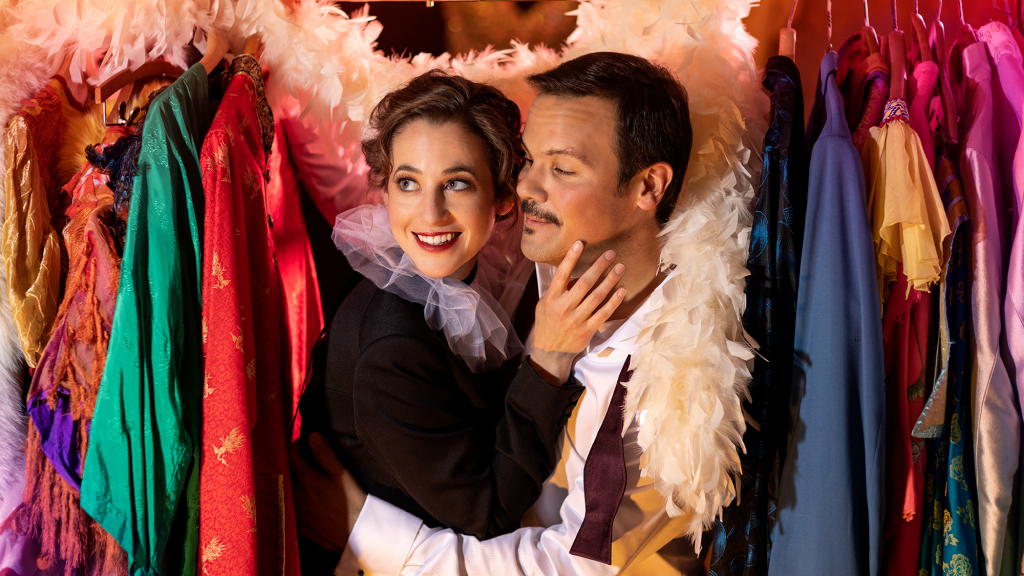How often do you get to “premiere” a Richard Strauss opera? Not very often. Strauss is considered one of the great composers of late Romantic opera, and his works are well known and widely performed. However, Strauss’s The Silent Woman (Die Schweigsame Frau) has only been performed a handful of times in the U.S. and Europe, and is ripe for an intriguing rediscovery.
Jana McIntyre, an alumna of The UCLA Herb Alpert School of Music (class of 2014), will sing the role of Aminta with Bard Summerscape Festival at Bard College from July 22 through July 31. It promises to be an imaginative rendering of Strauss’s truly comic, Italian-inspired opera, with an elaborate set, colorful costumes and precision staging.

The Silent Woman tells the story of an old sea captain who receives his nephew Henry and his wife Aminta at his home. The old sea captain warmly welcomes them, until he learns that Aminta is an opera singer and that she and Henry are part of an opera troupe, after which he disinherits Henry and casts the two out of his house. The old sea captain, it turns out, detests noise of any kind, and wishes to marry “a silent woman.” This offends the opera troupe (how could it not?) which proceeds to play a number of tricks on the old man, in part designed to bring his nephew Henry back into his good graces.
“Aminta is anything but sweet and charming,” said Peter Kazaras, distinguished professor and director of opera at The UCLA Herb Alpert School of Music. “She is a clever schemer. She has a lot of extremely tricky and high singing to execute in this funny and ultimately touching opera.”
McIntyre is quick to acknowledge the challenge of singing the role of Aminta, which is at the extreme end of the vocal range. She credits her training at UCLA for preparing her not just for such demanding roles, but for the operatic world outside of school.
“I studied with Michael Dean while at UCLA,” said McIntyre. “He really helped solidify my technique and has continued to be very supportive post-graduation. We as students were lucky to have open and accessible, caring faculty to learn from outside of the studio as well – a rarity in music school!” said McIntyre.
Michael Dean, professor of voice performance, recalled that “Jana impressed everyone not only with her natural vocal talent, but also with her intellect and artistry.”
McIntyre also recalled the rigor of her education. As a young undergraduate, she studied in a studio alongside inspiring graduate students and was afforded the incomparable opportunity to perform operas with UCLA’s prestigious Philharmonia.
Being selected to perform in big productions as an undergraduate could be unnerving. “The pressure was big,” recalled McIntyre. “And I had my stumbles.” But the experiences and opportunities provided at UCLA enriched and empowered her when she enrolled in graduate school at the Manhattan School of Music in 2016. There she suddenly found herself a big fish in a very big pond.

“There were some 100 sopranos in that voice program,” said McIntyre. “There was certainly a lot of competition. But also, it offered incredible opportunities. Post UCLA, I felt I had so many tools that others didn’t necessarily have. UCLA had protected and at the same time pushed me when I needed.”
McIntyre graduated from the Manhattan School of Music in 2016. After a couple of lean years, her career took off in 2019. “I spent 19 days at home that year,” McIntyre recalled. The rest of the time she was on the road, performing all over the country. “You suddenly realize you aren’t in school anymore. There’s no more going to learn the role at the piano. You are reading parts in airports and hotels, going from part to part.”
While the pandemic brought music performance to a near halt, McIntyre kept up a few performances. The call to perform a lead role at the Bard Summerscape Festival was a welcome return to the limelight. And especially with such an interesting and rare opera.
“It really is a spectacular production,” said McIntyre. “We get to play an opera troupe, which means that we really know the characters. Everybody knows someone who acts like so-and-so. It’s a tender spot for us.”
Richard Strauss composed The Silent Woman in 1934. It premiered at the Dresden Staatsoper on June 24, 1935. Almost immediately, Strauss was forced to make cuts to the opera, and it was banned after only four performances. The reason? The Nazi government disapproved of Strauss’s collaboration with the Austro-Jewish writer Stefan Zweig, who wrote the libretto based on Ben Jonson’s play. The work has been performed only a handful of times, and never in its entirety.
“This production really feels like a premiere,” said McIntyre. “I mean, how often do you get to premiere a Strauss opera?”
The Fisher Center’s Production of Richard Strauss’s The Silent Woman will be livestreamed on July 22 at 6:30 pm (EDT) and July 31 at 2:00 p.m. (EDT). Livestream tickets may be purchased here. Live performances at the Fisher Center at Bard College will be held July 22 at 6:30 pm (EDT), July 24 at 2:00 pm (EDT), July 27 at 2:00 pm (EDT), July 29 at 4:00 pm (EDT), July 31 at 2:00 pm (EDT). In-person tickets may be purchased here.
